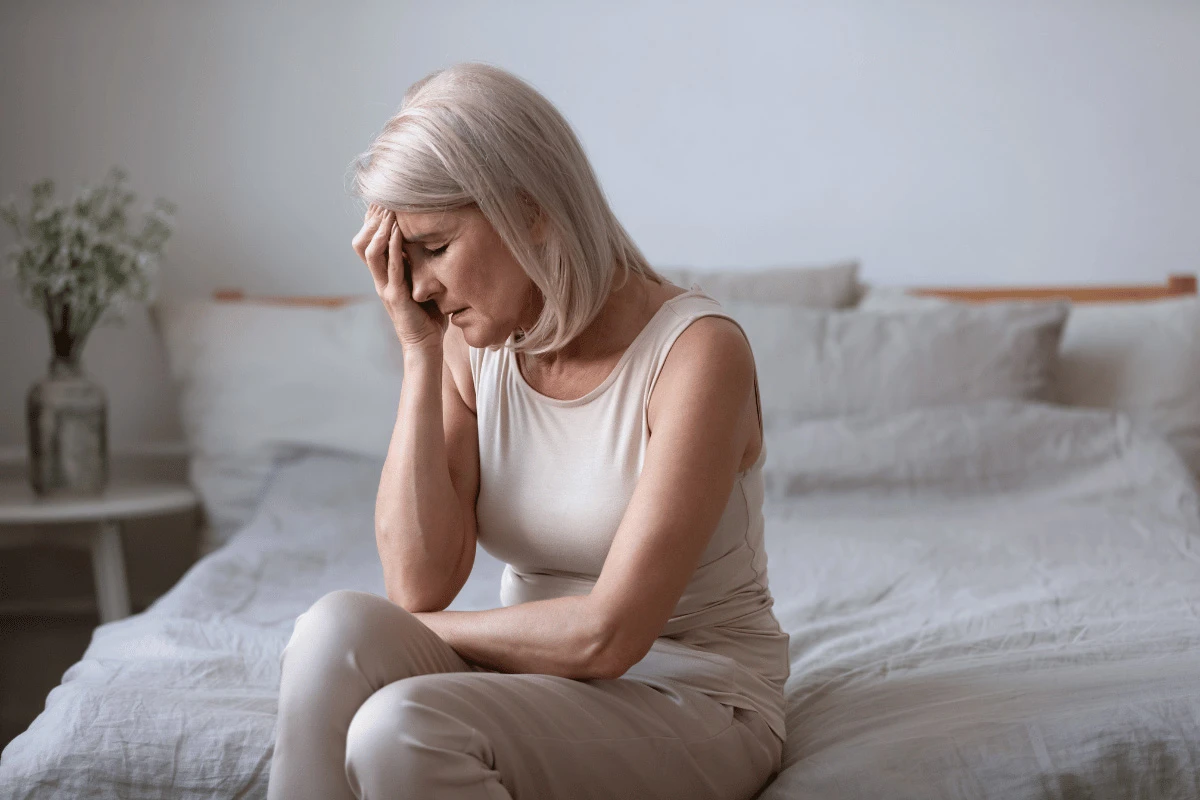Menopause can cause a variety of changes in a woman’s body, including hot flashes, night sweats, and mood changes. One of the lesser-known effects is the impact it can have on your eyes. If your eyes feel dry, irritated, or tired more than usual, hormonal changes may be to blame. Many women find that menopause can trigger or worsen dry eye symptoms.
In this blog, we’ll explore the connection between menopause and dry eye and how to manage this condition effectively with dry eye treatment in Plymouth.
How does menopause cause dry eye?
Hormonal changes during menopause affect tear production, leading to dryness, irritation, and sometimes blurry vision. Estrogen and androgens play a key role in tear production, so when their levels drop, your eyes may produce fewer or lower-quality tears.
Other factors like dehydration, screen time, and dry indoor air can worsen symptoms. On top of that, menopause often causes hot flashes and night sweats, which can lead to dehydration and further aggravate dry eyes. With all these changes happening at once, your eyes may feel tired, scratchy, and irritated.
Treating menopause dry eyes
If you’re looking for help with menopause and dry eyes, simple lifestyle changes and over-the-counter treatments may relieve your discomfort. Here are some tips to try:
1. Use artificial tears
One of the easiest and most common ways to relieve dry eye symptoms is to use over-the-counter artificial tears. These lubricating eye drops can help hydrate your eyes and relieve dryness. Look for preservative-free options if you plan to use them frequently, as they’re gentler on the eyes.
2. Stay hydrated
Dehydration can worsen dry eye symptoms, so make sure you’re drinking plenty of water throughout the day. Staying hydrated helps keep your eyes properly moisturized, which can reduce dryness and irritation.
3. Consider hormonal therapy
For some women, hormone replacement therapy (HRT) can help balance estrogen levels and improve dry eye symptoms. Talk to your doctor about whether HRT might be right for you. In some cases, a topical estrogen eye drop can help stimulate tear production and relieve symptoms.
4. Warm compresses and lid hygiene
A warm compress can stimulate the oil glands in your eyelids, preventing your tears from evaporating too quickly. Gently place a warm, damp cloth over your closed eyelids for about 5-10 minutes, and then follow up with a gentle massage to help express oil from the glands in your eyelids. Keeping your eyelids clean and free from debris can also help reduce inflammation and improve tear quality.
5. Try omega-3 supplements
Omega-3 fatty acids (found in salmon, flaxseeds, and walnuts) can improve tear quality. If you don’t get enough through food, supplements may help.
6. Use a humidifier
Dry indoor air can make your eyes feel even drier. Using a humidifier in your home can add moisture to the air and prevent your eyes from becoming overly dry, especially in the winter or if you run the AC often.
7. Avoid environmental irritants
Wind, smoke, and air conditioning can worsen dry eye symptoms. If you’re going outside on a windy day, wearing wraparound sunglasses can protect your eyes from the elements. Also, try to avoid smoke-filled areas or use air purifiers indoors to reduce environmental triggers.
When to see an eye doctor
While these tips can help manage dry eye symptoms, it’s always a good idea to consult with an eye care professional if your symptoms persist or worsen. An eye doctor can determine if your dry eye is related to menopause or if there’s another underlying condition contributing to your discomfort.
In some cases, professional treatment may be necessary to manage chronic dry eye. At Progressive Family Eye Care, we offer advanced dry eye treatment that provides long-lasting results. Our treatment options include OptiLight IPL therapy and BlephEx® treatment, which are all designed to treat the root causes of dry eye.
Find relief from dry eye discomfort
Dry eyes during menopause can be frustrating and uncomfortable, but it’s not something you have to put up with. Small changes can help, and if you need extra relief, professional treatments are available.
If dry eyes are making your daily life uncomfortable, schedule a visit with Progressive Family Eye Care. We’ll help you find the right solution to keep your eyes feeling comfortable.





